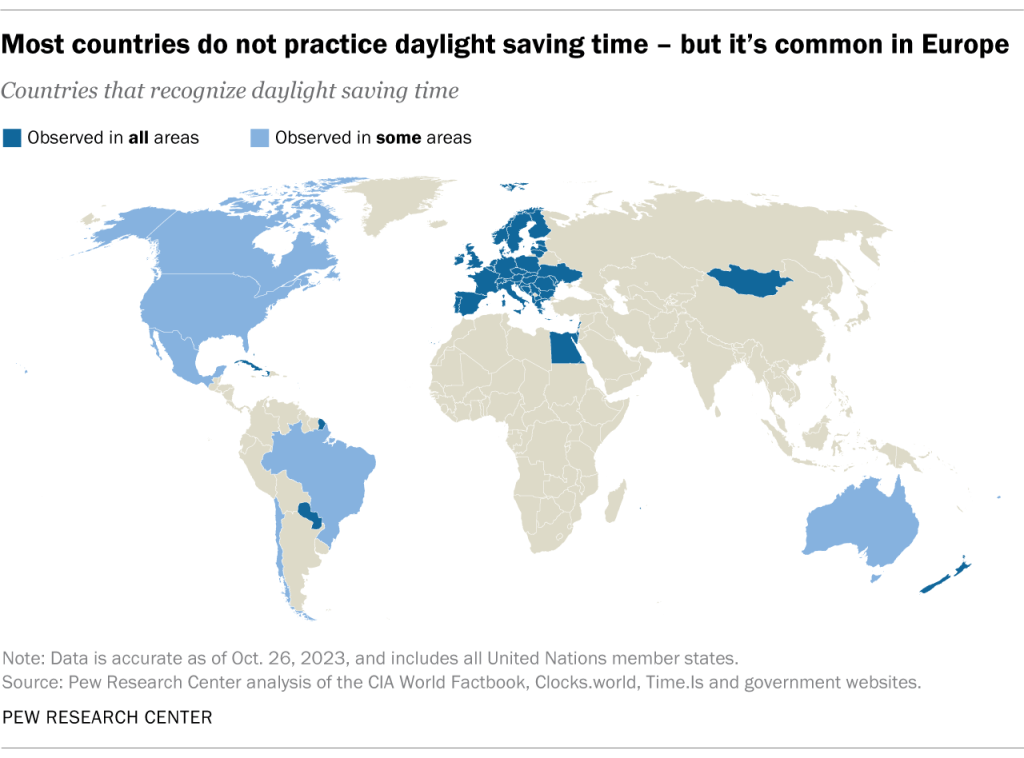ZD 24.34: Fall Back for What?
Clocks turned back this weekend. Why daylight savings is not a win.
In this issue: Healthcare turning point; CrowdStrike liability limits; realistic fear of AI; bad fascist leadership tendencies; China’s boom time; the cost of changing clocks.
The Distilled Spirit
It is election day across the United States. I don’t always agree with Bryan Caplan, but today I think he best describes my mood going into tonight. That said, go vote.
🩺 Healthcare Turning Point (Digital Native)
Most industries in America have become better, faster and cheaper since the mid 20th century. Healthcare has been one of the major exceptions. Luckily, the US has been rich enough to write this off. But now it is getting unaffordable. Our healthcare is more expensive and our outcomes are comparably worse. Technology has opened some doors. Rex sees a breaking point coming and an opportunity for investment in this field in some places.
🦅 CrowdStrike’s Potentially Limited Liability (The LawVerse Substack)
CrowdStrike made what one could argue is a grossly negligent error and broke enough software to cause some $10 billion or so in economic damage. It appears likely that the company will pay a much smaller bill. LawVerse does a great job walking non-lawyers through a fairly complicated scenario. For what it’s worth, CrowdStrike seems to not be taking too big a hit for the incident.
🔊 How Scared Should you be of AI? (Andrew Ng / The Batch)
AI can be a scary thing. It does look like it will consume all of our energy like Skynet, regulation could stop progress, coders will become obsolete and more. Andrew Ng elaborates on these fears and advises readers what to really be worried about. AI is big and hairy and mean but probably not as scary as it seems.
❌ Fascist Decisions Lead to Defeat (A History of Mankind)
Fascist leaders appear to be strong but fundamentally weaken the institutions around them. In order to keep control they naturally erode the institutions that build strong public goods. The article examines how Hitler and Mussolini made horrible decisions that helped lead to their ultimate defeats.
📈 China’s Booming Guilded Era (Construction Physics)
China's modern transformation is eerily similar to the U.S.'s explosive 19th-century growth, noting similarities in urbanization, manufacturing dominance, and economic opportunity. Both nations evolved from agrarian to industrial powerhouses, driving rapid city growth, infrastructure feats, and mass consumerism. Yet both also lagged scientifically, with technological advancements heavily reliant on external knowledge during these periods. A key difference is that the US built itself on a scarcity of labor whereas China has built upon leveraging a large mass of cheap labor more efficiently.
Fall Back for What?
Why do we give ourselves jetlag? Every year, millions of people, mainly in the northern hemisphere, bump their clocks an hour forward in the spring and an hour back in the fall. Apparently, permanent daylight savings time was last tried in the US 1974 but the experiment was cut short when congress reverted the stance after 8 months. That was more than 40 years ago, and in the meantime we have learned a lot more about why the change in clock is bad for your health. Apparently permanent standard time is a better plan. The world has listened - many countries have stopped changing clocks.
The Look
Europe and the US are among the few outliers who still embrace DST.
Did you enjoy reading this post? Hit the ♥ button above or below because it helps more people discover great Substacks like this one and it helps train your algorithm to get you more posts you like. Please share here or in your networks to help us grow!




